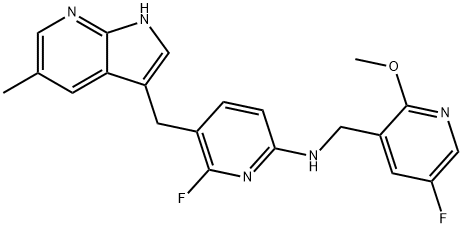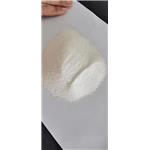PLX5622 (1303420-67-8) is a highly selective (>20 fold over KIT and FLT3, >60 fold over 200 other kinases) and brain-penetrant inhibitor of colony-stimulating factor 1 receptor (CSF1R; IC50 = 16 nM).1 It prevented plaque formation in 5xFAD1 and 3xTg2 mouse models of Alzheimer’s disease via elimination of microglia in a CSF1R-dependent manner.? PLX5622 showed efficacy in a mouse neuropathic pain model via reduction of CD86+ macrophages resulting in reduced expression of pro-inflammatory cytokines.3 It also was able to ameliorate peripheral neuropathy in aging mice.4 PLX5622 displayed neuroprotective effects during the chronic phase of a traumatic brain injury mouse model.5? PLX5622 has also been shown to affect myeloid and lymphoid compartments, indicating that its affects are not limited to microglia and include peripheral immune cells.6
Spangenberg et al. (2019) Sustained microglial depletion with CSF1R inhibitor impairs parenchymal plaque development in an Alzheimer’s disease model; Nat. Commun.?10 3758
Dagher et al. (2015) Colony-stimulating factor 1 receptor inhibition prevents microglial plaque association and improves cognition in 3xTg-AD mice; J.? Neuroinflammation 12 139
Lee et al. (2018) Targeting macrophage and microglia activation with colony stimulating factor 1 receptor inhibitor is an effective strategy to treat injury-triggered neuropathic pain; Mol.? Pain?14 1
Yaun et al. (2018) Macrophage Depletion Ameliorates Peripheral Neuropathy in Aging Mice.; J.? Neurosci.?38 4610
Henry et al. (2020) Microglial Depletion with CSF1R Inhibitor During Chronic Phase of Experimental Traumatic Brain Injury Reduces Neurodegeneration and Neurological Deficits.; J.? Neurosci.?40 2960
Lei et al. (2020) CSF1R inhibition by a small-molecule inhibitor is not microglia specific; affecting hematopoiesis and the function of macrophages.; Proc. ?Natl. Acad. Sci USA?117 23336



